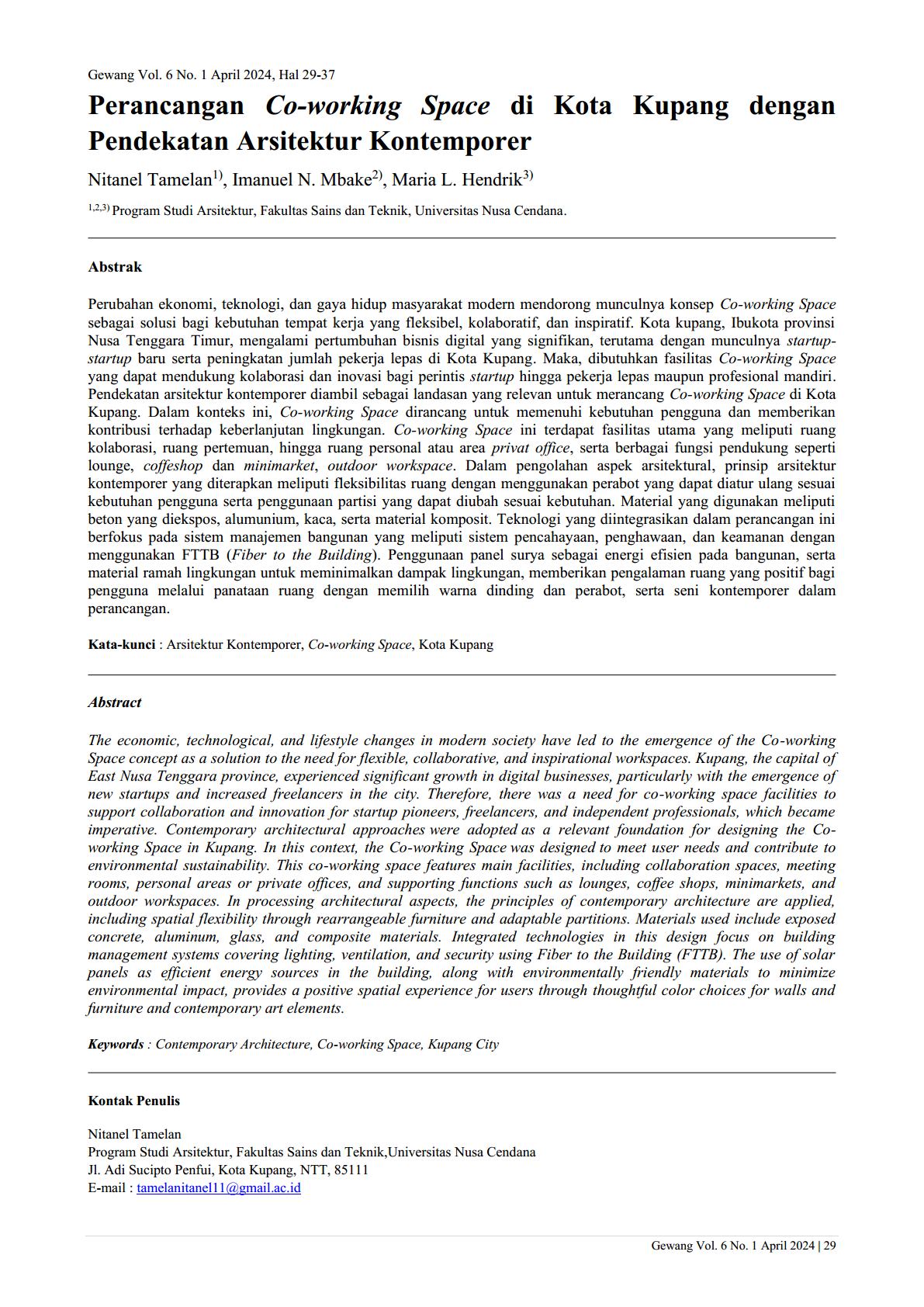Perancangan Co-working Space di Kota Kupang dengan Pendekatan Arsitektur Kontemporer
Main Article Content
Abstract
The economic, technological, and lifestyle changes in modern society have led to the emergence of the Co-working Space concept as a solution to the need for flexible, collaborative, and inspirational workspaces. Kupang, the capital of East Nusa Tenggara province, experienced significant growth in digital businesses, particularly with the emergence of new startups and increased freelancers in the city. Therefore, there was a need for co-working space facilities to support collaboration and innovation for startup pioneers, freelancers, and independent professionals, which became imperative. Contemporary architectural approaches were adopted as a relevant foundation for designing the Co-working Space in Kupang. In this context, the Co-working Space was designed to meet user needs and contribute to environmental sustainability. This co-working space features main facilities, including collaboration spaces, meeting rooms, personal areas or private offices, and supporting functions such as lounges, coffee shops, minimarkets, and outdoor workspaces. In processing architectural aspects, the principles of contemporary architecture are applied, including spatial flexibility through rearrangeable furniture and adaptable partitions. Materials used include exposed concrete, aluminum, glass, and composite materials. Integrated technologies in this design focus on building management systems covering lighting, ventilation, and security using Fiber to the Building (FTTB). The use of solar panels as efficient energy sources in the building, along with environmentally friendly materials to minimize environmental impact, provides a positive spatial experience for users through thoughtful color choices for walls and furniture and contemporary art elements.
Downloads
Article Details
This license enables reusers to distribute, remix, adapt, and build upon the material in any medium or format, so long as attribution is given to the creator. The license allows for commercial use

